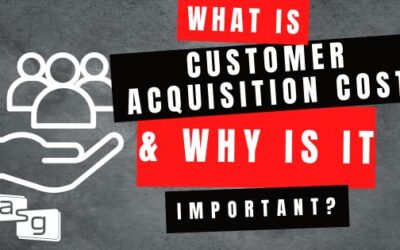How a Calculated Sales Risk Paid Off
One of the top selling Tequilas in the world doesn’t allow the word tequila to be used when referring to it’s product. Yes, it’s on the bottle, but that’s pretty much the only place you’re gonna see the word.
The logic?
It comes down to a simple question. What do you think of when you think of the word “tequila?”
Exactly!
The Birth of Patron
This is precisely what John McDonnell understood while he and his partner John Paul DeJoria of Paul Mitchelle were sipping on an extremely smooth tequila a friend had brought back from Mexico. Blown away by its smooth taste, they hired a “tequila chef” to make it smoother and produced 1,000 bottles. They figured if they don’t sell they can give them away to friends.
They sold and Patron Tequila was born.
Boosting Sales Through Innovation
Positioning Patron as a super premium liquor and not a tequila, McDonnell had to take a different tact. “. . . instead we said to people, ‘I’d like you to try Patron,’ and people said ‘What is it?’ And we said ‘Just try it.’”
If you’ve ever order Patron, you know know that the name Patron holds a place of its own in the world of tequila. It’s the gold standard. You order tequila or you order Patron.
Choosing a sales and marketing strategy that avoids calling your product what it is takes guts. I can see the head of marketing in a traditional organization, sitting around a big conference table delivering their marketing plan and starting it with . . . “We will not be using the word tequila in association with our product, tequila.” The conversation wouldn’t last another minute. Most organizations don’t have the guts to be that creative.
They should.
Unconventional Sales Brilliance: Take a Risk!
Patron is now the second largest-selling tequila by retail value, edging out Don Julio and even recent favorite Casamigos. Patron sold over a billion dollars worth of tequila in 2020. Not bad for a company that avoids the word “tequila.”
Kicking the word “tequila” to the curb was not Patron’s only strategy. They recognized that to grow they had to go global. They had to do more than ban the word “tequila” and target key influencers (popular bartenders and celebrities), they needed to go after an unconventional market, and they found it in duty free shops.
Global Expansion Strategy
Duty free was the land of scotch and cognac. Tequila was nowhere to be found. The strategy, own the duty free shops before the competitors could see what was happening. Starting with World Duty Free in London’s Heathrow Airport, one of the busiest and most luxurious duty free shops in the world, Patron blew up and can now be purchased in 135 countries.
Nine out of ten strategies suck. They do just enough to support slow growth, make the number, capitalize on the low-hanging fruit and not raise eyebrows in the board room. However, Patron is just one example of sales strategy creativity. True game changing strategies are creative. They capitalize on weakness in the market. They leverage unseen opportunities. They are risky, in many cases, involving all or nothing outcomes.
Patron went from two guys sipping tequila in 1989, to one of the best selling tequilas in the world because the had the guts to execute a unique, creative, winning strategy.
McDonnell and DeJoria don’t call their tequila, “tequila” but they can call their strategy successful.
What are your sales strategies? Where are you taking risk? How are you looking at things differently? Do you have the guts to create a Patron like strategy? You might want to consider it.





0 Comments